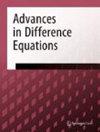On the hyperbolic nonlinear Schrödinger equations
IF 3.1
3区 数学
Q1 MATHEMATICS
引用次数: 0
Abstract
Here, we consider here Hyperbolic Nonlinear Schrödinger Equations (HNLS) that occur as asymptotic models in the modulational regime when the Hessian of the dispersion relation is not positive (or negative) definite. We review classical examples, well-known results, and main open questions.
关于双曲非线性薛定谔方程
在这里,我们考虑的是超曲非线性薛定谔方程(HNLS),当频散关系的 Hessian 不是正(或负)定值时,这些方程会作为渐近模型出现在调制系统中。我们将回顾经典例子、著名结果和主要开放问题。
本文章由计算机程序翻译,如有差异,请以英文原文为准。
求助全文
约1分钟内获得全文
求助全文
来源期刊

Advances in Difference Equations
MATHEMATICS, APPLIED-MATHEMATICS
CiteScore
8.60
自引率
0.00%
发文量
0
审稿时长
4-8 weeks
期刊介绍:
The theory of difference equations, the methods used, and their wide applications have advanced beyond their adolescent stage to occupy a central position in applicable analysis. In fact, in the last 15 years, the proliferation of the subject has been witnessed by hundreds of research articles, several monographs, many international conferences, and numerous special sessions.
The theory of differential and difference equations forms two extreme representations of real world problems. For example, a simple population model when represented as a differential equation shows the good behavior of solutions whereas the corresponding discrete analogue shows the chaotic behavior. The actual behavior of the population is somewhere in between.
The aim of Advances in Difference Equations is to report mainly the new developments in the field of difference equations, and their applications in all fields. We will also consider research articles emphasizing the qualitative behavior of solutions of ordinary, partial, delay, fractional, abstract, stochastic, fuzzy, and set-valued differential equations.
Advances in Difference Equations will accept high-quality articles containing original research results and survey articles of exceptional merit.
 求助内容:
求助内容: 应助结果提醒方式:
应助结果提醒方式:


